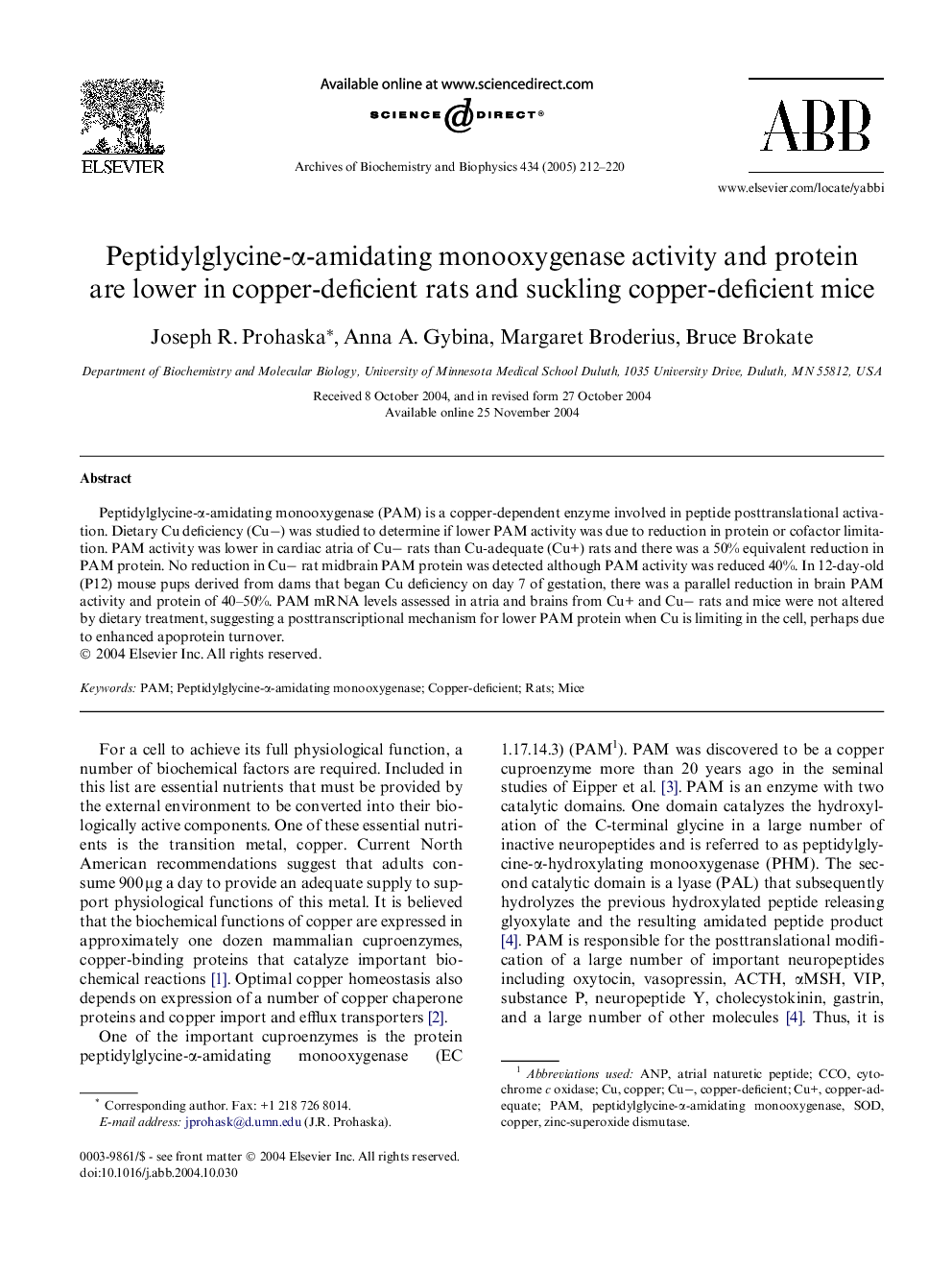| Article ID | Journal | Published Year | Pages | File Type |
|---|---|---|---|---|
| 9882369 | Archives of Biochemistry and Biophysics | 2005 | 9 Pages |
Abstract
Peptidylglycine-α-amidating monooxygenase (PAM) is a copper-dependent enzyme involved in peptide posttranslational activation. Dietary Cu deficiency (Cuâ) was studied to determine if lower PAM activity was due to reduction in protein or cofactor limitation. PAM activity was lower in cardiac atria of Cuâ rats than Cu-adequate (Cu+) rats and there was a 50% equivalent reduction in PAM protein. No reduction in Cuâ rat midbrain PAM protein was detected although PAM activity was reduced 40%. In 12-day-old (P12) mouse pups derived from dams that began Cu deficiency on day 7 of gestation, there was a parallel reduction in brain PAM activity and protein of 40-50%. PAM mRNA levels assessed in atria and brains from Cu+ and Cuâ rats and mice were not altered by dietary treatment, suggesting a posttranscriptional mechanism for lower PAM protein when Cu is limiting in the cell, perhaps due to enhanced apoprotein turnover.
Keywords
Related Topics
Life Sciences
Biochemistry, Genetics and Molecular Biology
Biochemistry
Authors
Joseph R. Prohaska, Anna A. Gybina, Margaret Broderius, Bruce Brokate,
